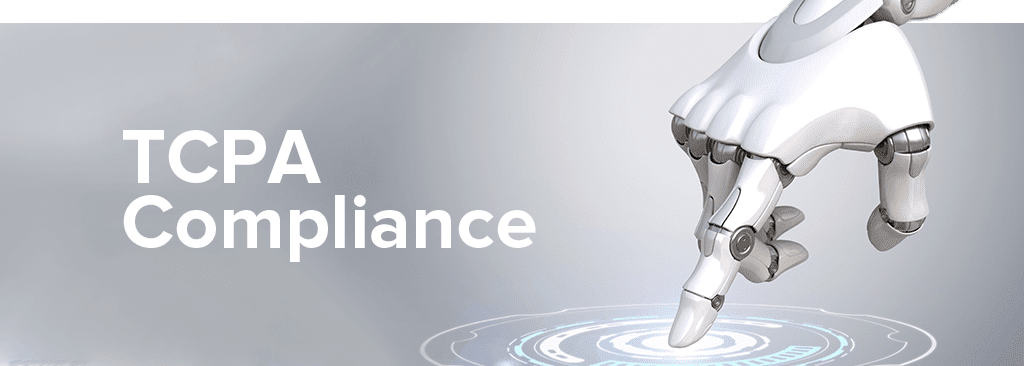5 Winning Methods that Keep Expanding Call Centers TCPA Compliant
Many call centers can’t afford not to be TCPA compliant. Literally.
For eight years, the Department of Justice, the FTC and the Attorneys General of California, Illinois, North Carolina, and Ohio sued Dish Network for violating the Telephone Consumer Protection Act (TCPA) and Do Not Call (DNC) registry. They eventually won, forcing the satellite TV provider to pay $280 million in civil penalties.
They weren’t the first and they won’t be the last company sued and fined for violating these rules. Every company and call center is in the crosshairs. TCPA compliance could mean life or death for many businesses.
It’s especially difficult for expanding call centers to stay on top of the ever-changing regulations while attempting to institute new technologies and reach more customers.
Fortunately, there are many ways call centers can protect themselves from incurring the wrath of regulators. Read on to discover how to remain TCPA compliant even while expanding a call center.
5 Methods for Staying TCPA Compliant
Remaining TCPA compliant requires constant vigilance and adherence to best practices. There’s no quick fix, but if call centers follow our advice below, they’ll be in much better shape to fend off potential lawsuits than call centers that don’t stick to these guidelines.
1. Do-Not-Call List and Cell Phone Scrubbing
As we pointed out with the Dish Network case, violating the Do Not Call registry is a serious offense that can and will be prosecuted.
But call centers would only get in trouble if they’re calling numbers that are on the DNC registry. That’s why most outbound calling software automatically compares your list of numbers to the DNC registry and removes (scrubs) the numbers on the DNC registry off of your call list. It also works to scrub cell phones from your lists too, since those can only be contacted for marketing purposes with prior express written consent.
2. Checking Telephone Numbers for Express Prior Consent
If there’s express prior consent (EPC) then there’s virtually no violation of the DNC registry or TCPA. But written consent is required for any telemarketing call, which can be tough to acquire for many call centers.
Judd Peak, chief compliance officer and general counsel at Frost-Arnett Company recommends sending out a validation letter first, and “after the initial validation letter is sent, then maybe you get a first response if the consumer calls in from that letter, then that’s a good opportunity for you to try to obtain that express consent to call in the future or send text messages or what have you.”
Nicole Strickler, shareholder and partner at Messer Strickler Ltd., had this to say about obtaining consent:
“If you build consent into your scripts correctly, it can serve as quite the tool in defeating the class action if your policy or procedure is, every time the collector is speaking to the consumer they say something to the effect of ‘Is this a good number to call you on?’ and the consumer says ‘yes.’”
Call centers should also keep a list of names and numbers with written prior consent so that when their auto dialer can automatically check whether the next person being called has given consent or not.
3. Manual Dialing
Then again, some call centers choose not to take the risk of dialing customers automatically and opt to perform the task manually. This method is usually reserved for smaller call centers with fewer customers. But, if call centers are worried about getting hit by a TCPA lawsuit, or have received one too many calls from angry customers upset about robocalls, then it’s time to get back to basics.
Manual dialing, while time intensive, does provide a much-wanted human element that many customers prefer. It also allows agents to focus on each call and take their time with customers. And most importantly, manually dialing virtually guarantees your safety from lawsuits.
4. Identifying Oneself on a Call
Most call centers already build this into their scripts, but it’s important to state it over and over again:
Call center agents must identify themselves immediately upon speaking to a customer. If they don’t, a call center could end up in hot water. Agents must also provide a phone number to customers that they can call to reach a live person if they wish. The number cannot be the same as the one agents use to call customers.
5. Call Recording
Call centers can and should record calls. Recorded calls provide data that managers can use to identify problems with customer service or highlight excellent handling of customer requests.
However, call centers cannot record sensitive information on the phone such as credit card and social security numbers. If an agent requests this type of information over the phone, they must pause the recording and then resume it once the customer is finished.
The TCPA Guide and Checklist Call Center Managers Need to Have (for Free)
The tips we’ve provided here are a great starting point for staying TCPA compliant but it just scratches the surface of what call centers need to know.
That’s why we created an in-depth guide to everything TCPA. We even created a TCPA checklist you can use to make sure you implement all the right tools and follow all the correct rules to remain TCPA compliant.
Go ahead and download both of them for free today.
